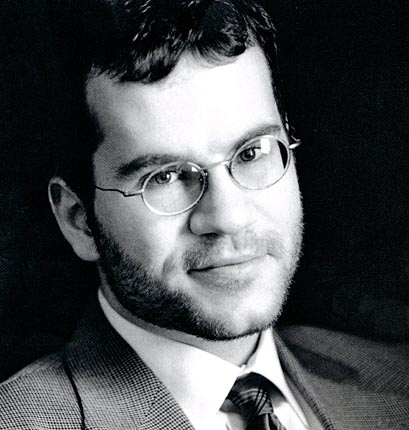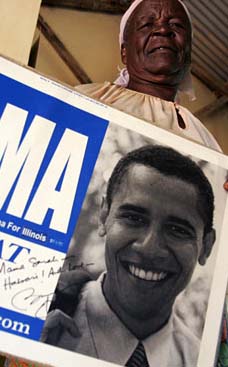
"It is hard to know who, exactly, is speaking: the art or the artist? In his acknowledgments, Vann writes, a little inelegantly, that his stories are "fictional, but based on a lot that's true." Fifty years ago, when writers were romanticized differently, it was less problematic to imagine an author and his narrator as an essentially Siamese-twin phenomenon. Today, such a determined blurring may strike some readers as self-consciously therapeutic or, worse yet, self-serving. Vann's narrator speaks of the "last beautiful, desperate, far-ranging circlings" of his father's life, but he may as well be describing the overall method of these stories." Author Tom Bissell served as a Peace Corps Volunteer in Uzbekistan.
Tom Bissell reviews David Vann's 'Legend of a Suicide'
David Vann's 'Legend of a Suicide'
By Tom Bissell
Published: November 27, 2008
Legend of a Suicide By David Vann. 172 pages. University of Massachusetts Press. $24.95
Suicide is an exploded bridge that can never be repaired. All its secondary victims can do is stare across the chasm and hope the other side is more peaceful than this one. In his first book, "A Mile Down," David Vann wrote of his attempt to surpass the modest seafaring efforts of his father, who killed himself when Vann was a boy. In search of answers, Vann built a ship and set out for the watery depths - only to come close to reuniting with his father in the void. This was an exorcism that wound up needing an exorcism. One hopes, for Vann's sake, that the novella and five stories in his second book, "Legend of a Suicide," helped provide it. An author more haunted by paternal amputation would be difficult to imagine. A sadder book about fathers and sons would be impossible to imagine.
The book's central character is a boy named Roy. The novella and four of the five stories take place in Alaska, where Vann himself grew up, and only the novella steps outside Roy's first-person narration. While the father's suicide is dramatized explicitly just once, it exerts its gravitational pull on every page.
From the shores of Vann's Alaska one can see the Russia of Turgenev's "Fathers and Sons." One can also see Richard Ford's "Rock Springs" and Tobias Wolff's archipelago of perpetual struggle.
Structurally dependent on epiphany and defiantly plainspoken, "Legend of a Suicide" is about as unfashionable as fiction published in 2008 can possibly be. Its language ranges from the undeniably evocative ("I slipped out into the soft, watery world of Alaskan rain-forest night") to the iffier register of quasi-Hemingway. Thankfully, examples of the former vastly outnumber the latter.
A few passages nevertheless have a confession-booth, vaguely essayistic feel. In "Ketchikan," a 30-year-old Roy returns to his Alaskan hometown and, after listing its many eccentricities, notes, "This was overwrought, but it seemed in keeping with the indulgence of this trip, with the extravagance of an attempted return to childhood." At the story's end, Roy tells us that "the divorce and suicide that I had let shape my life so permanently had been something else altogether. . . . And what, then, of what I had become?"
It is hard to know who, exactly, is speaking: the art or the artist? In his acknowledgments, Vann writes, a little inelegantly, that his stories are "fictional, but based on a lot that's true." Fifty years ago, when writers were romanticized differently, it was less problematic to imagine an author and his narrator as an essentially Siamese-twin phenomenon. Today, such a determined blurring may strike some readers as self-consciously therapeutic or, worse yet, self-serving. Vann's narrator speaks of the "last beautiful, desperate, far-ranging circlings" of his father's life, but he may as well be describing the overall method of these stories.
In "Ichthyology," Roy watches two "slick and merciless" silver-dollar fish, recently introduced to his aquarium, attack a "lazy, boggle-eyed" tankmate, sucking out both its eyes. The story returns, stunningly, to this image in its final lines. Much of Vann's book works this way. The smallest moments of unease are placed on the narrative scale as if they were lead bars. Suicide gives everything it has not destroyed a dreadful, unfamiliar weight.
In the novella, "Sukkwan Island," the powerful and supremely vexing centerpiece of the collection, Roy and his father make a final attempt at reconciliation. The father has bought a cabin in the Alaskan wilderness with the intent of spending a year there with his son, homesteading and living off the land. The first half of the novella is narrated from Roy's close third-person perspective, the second half from the father's. In the first few pages Vann shows the reader an unassuming set of rustic implements: some rope, a few screws, a battery. By the story's end the rope has become a noose, the screws have been driven into the reader's fingernails, and the battery is wired someplace unspeakable.
The father, a dentist who has quit his practice in Fairbanks, imagines himself as a high-north survivalist. He is, in fact, woefully unprepared. He does not know the name of the nearest inhabited island or how to build a cache for winter food or how to repair the cabin's damaged roof or how to keep the bears away. (Not everyone who lives in places like Alaska is born knowing how to MacGyver a water filter out of bark.) The father does not even have the sense to prevent his increasingly terrified son from overhearing his hopeless nighttime sobs.
"Sukkwan Island" is about the love of a powerless boy for a weak father. While his father goes to pieces, Roy busies himself with fishing and chores, activities that showcase Vann's grimly observant facility with natural-world detail. When Roy bashes in the head of a Dolly Varden trout, he hunches down "to look at it and watch its colors fade." An early pink salmon lies "gasping and wild-eyed" after the boy scoops it up by the gills and heaves it onto the beach. (Warning: the fish-trauma-per-page ratio here makes "The Old Man and the Sea" seem like a paean to ichthyophilia.)
Every night, Roy goes to bed to the sound of his father's weeping. "I'm sorry, Roy," he eventually tells his son. "I'm really trying. I just don't know if I can hold on." Later, after he confesses that he once got crab lice from a prostitute and passed them along to the boy's stepmother, he asks, "Do you think I'm a monster?" Soon enough, a bit of dialogue as innocent as "Maybe we should go for a hike" becomes a portent of doom.
And yet this man is never hateful. You'd have to go back to books like "The Mayor of Casterbridge" or "The Great Santini" to find a father capable of such loathsome deeds brought to life with such empathy. After one bit of appalling fatherly negligence, Vann writes, "There were no good times after this." And there are 50 pages to go.
The central event of "Sukkwan Island," shocking for several reasons, appears to take place in a parallel universe. The Roy and the father of the other stories cannot be the Roy and the father of this story. Vann does not choose to explain this, and he should not have to. But it is strange, like encountering Borges, in waders, within "A River Runs Through It."
The reportorial relentlessness of Vann's imagination often makes his fiction seem less written than chiseled. One cannot say that Vann does not do humor well because - here, at least - he does not do humor at all. What he does do well is despair and desperation. In spite (or maybe because) of this, he leads the reader to vital places. A small, lovely book has been written out of his large and evident pain. "A father, after all," Vann writes, "is a lot for a thing to be." A son is also a lot for a thing to be; so is an artist. With "Legend of a Suicide," David Vann proves himself a fine example of both.
Tom Bissell's most recent book is "The Father of All Things."













